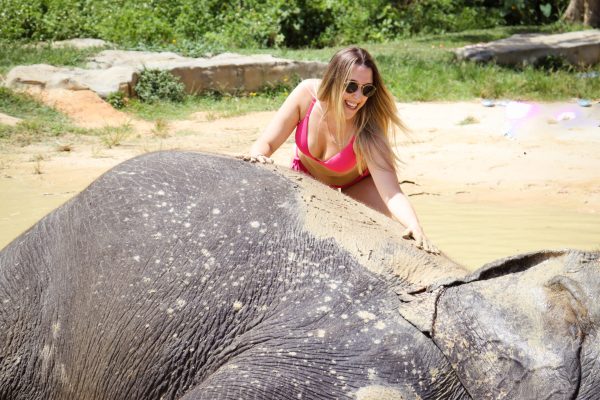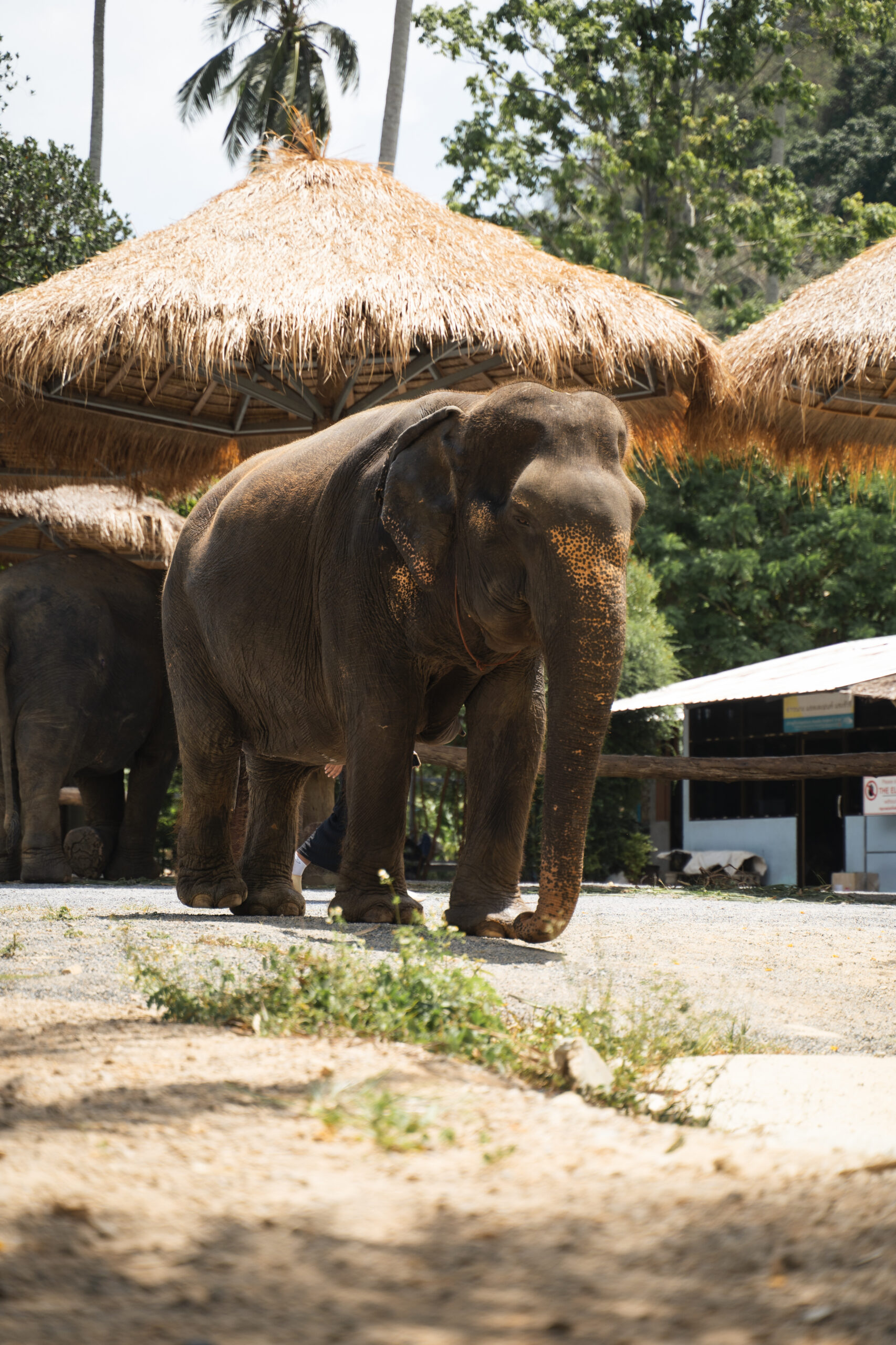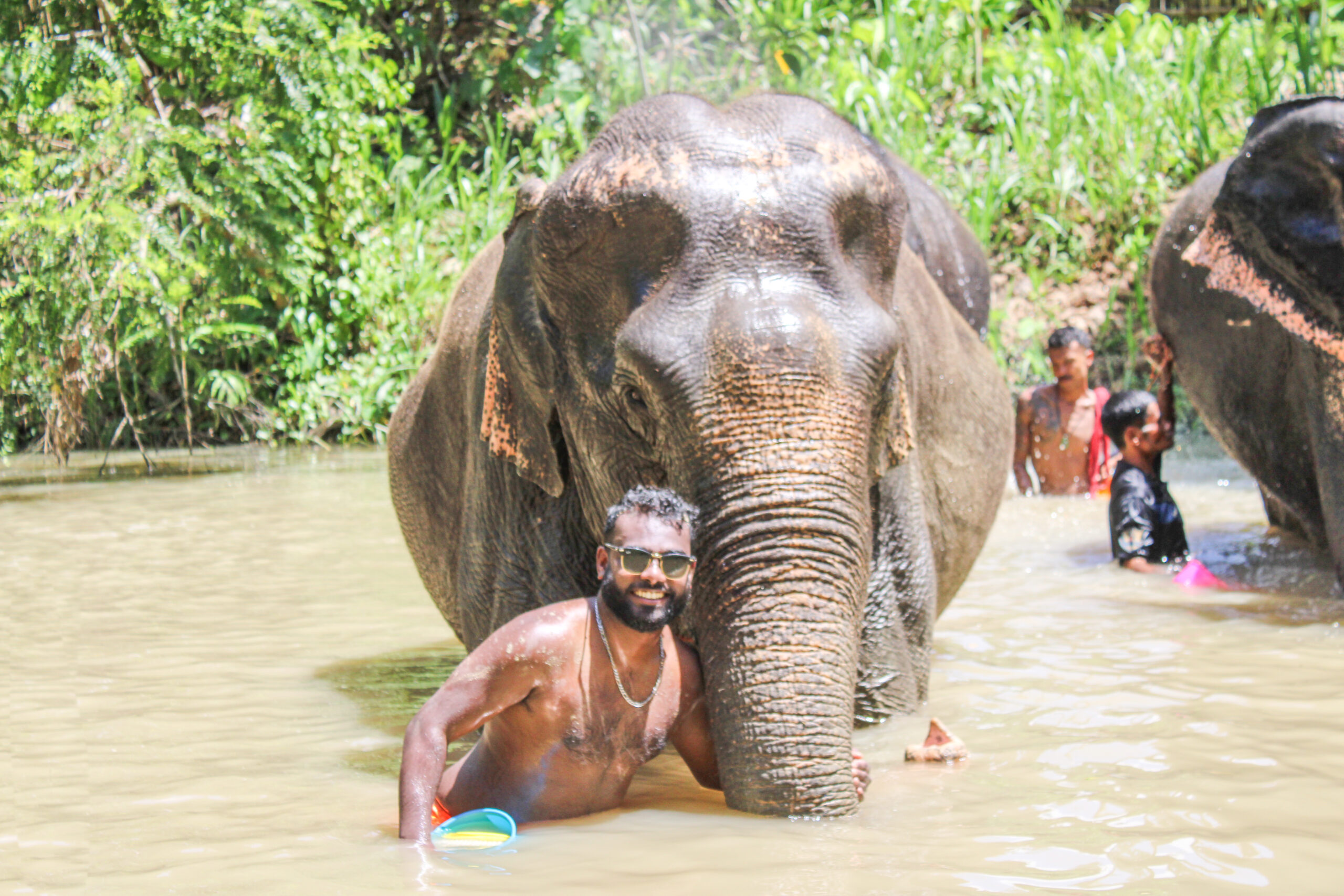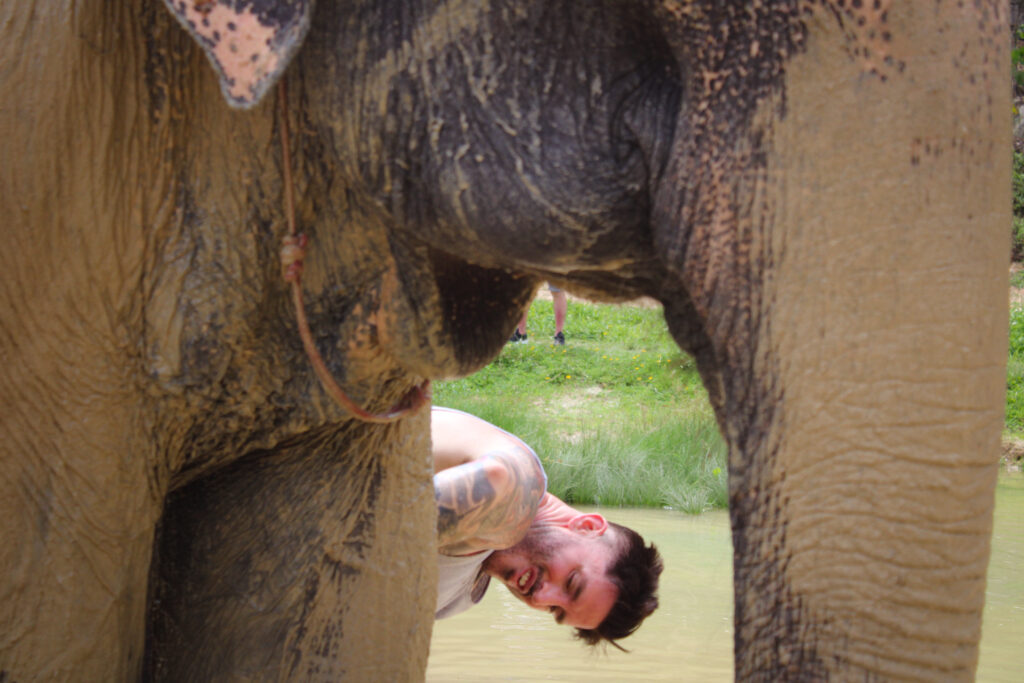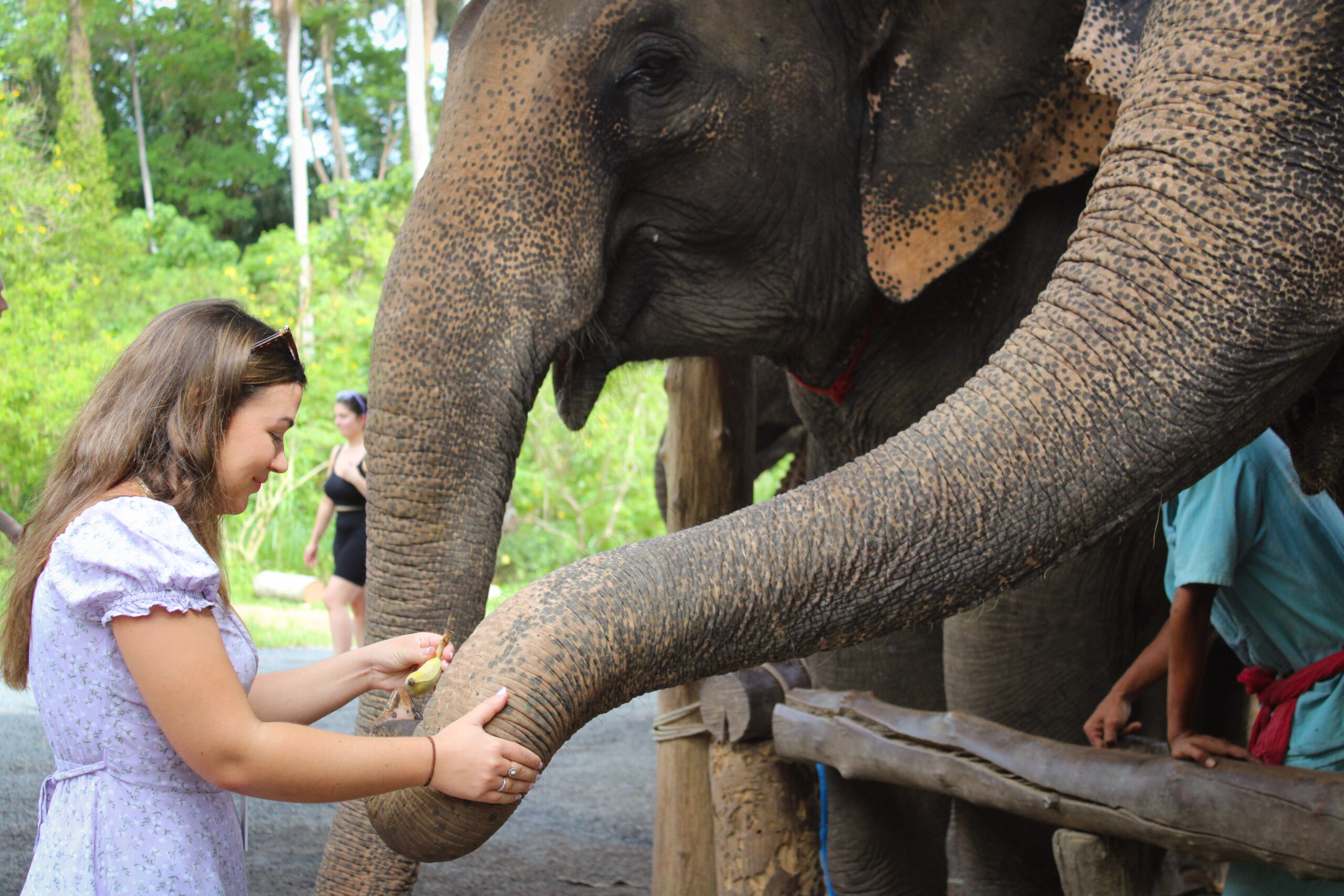
Welcome to a comprehensive exploration of elephant experience, where we delve deep into the fascinating world of these magnificent creatures. Elephants, with their intelligence, social complexity, and sheer size, have captivated the human imagination for centuries. In this extensive guide, we’ll embark on a journey to understand and appreciate the various facets of elephant experience, from their natural behaviors in the wild to the interactions they share with humans in sanctuaries and conservation efforts worldwide.
Understanding Elephant Behavior
Elephants are highly intelligent and social animals, exhibiting a wide range of behaviors that reflect their complex lives in the wild. Observing elephants in their natural habitat provides valuable insights into their behaviors, such as herding patterns, communication methods, and feeding habits. From the matriarchal structure of elephant herds to the tender bonds between mothers and calves, each aspect of their behavior offers a glimpse into their rich and intricate social dynamics.
The Importance of Elephant Conservation
As iconic symbols of wildlife, elephants play a crucial role in maintaining the balance of ecosystems. However, they face numerous threats, including habitat loss, poaching, and human-wildlife conflict. Conservation efforts aimed at protecting elephants and their habitats are essential for ensuring their survival and the preservation of biodiversity. Through initiatives such as anti-poaching measures, habitat restoration, and community-based conservation projects, we can work together to safeguard the future of these majestic animals.
Elephant Experience: Balancing Conservation and Experience
The rise of elephant tourism has sparked debates about the ethical implications of interacting with captive elephants. While some argue that tourism provides much-needed revenue for conservation efforts, others raise concerns about the welfare of elephants in captivity. It’s essential to prioritize ethical elephant experiences that prioritize the well-being of the animals and promote responsible tourism practices. Sanctuaries and eco-tourism initiatives that prioritize education, conservation, and the welfare of elephants offer a more sustainable approach to elephant tourism.
A Day in the Life of an Elephant Sanctuary
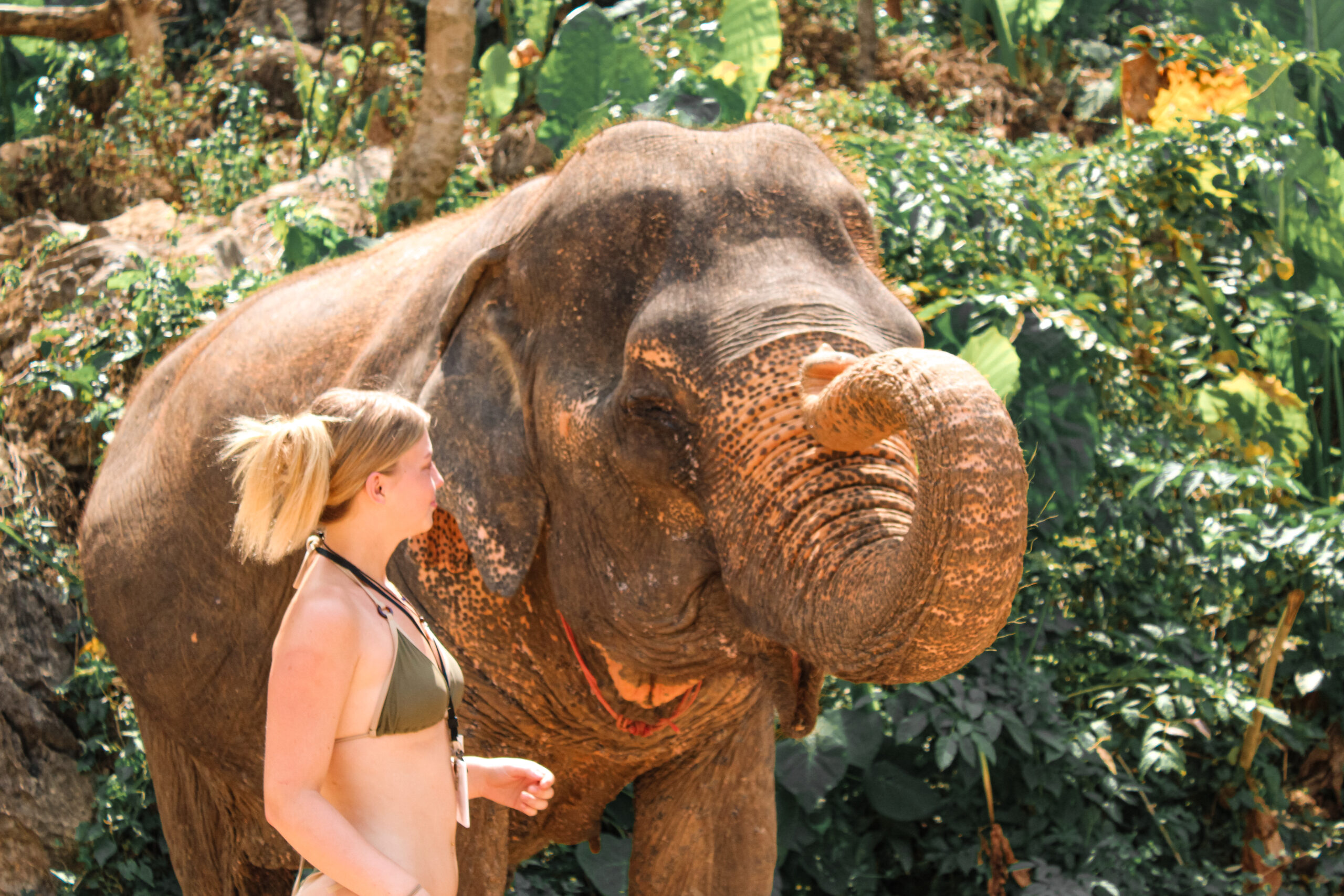
Visiting an elephant sanctuary offers a unique opportunity to connect with these incredible animals while supporting conservation efforts. A typical day at an elephant sanctuary may include guided walks through the forest to observe elephants in their natural habitat, feeding sessions where visitors can offer treats to the elephants, and bathing activities in nearby rivers or mud pits. Throughout the day, knowledgeable guides provide insights into elephant behavior, conservation challenges, and the sanctuary’s mission.
Educational Initiatives: Empowering Conservation Through Knowledge
Education plays a crucial role in raising awareness about elephant conservation and promoting sustainable practices. Elephant sanctuaries often offer educational programs for visitors, schools, and local communities, covering topics such as elephant biology, ecology, and the importance of protecting their habitats. By empowering individuals with knowledge and understanding, we can inspire action and foster a sense of stewardship towards elephants and their ecosystems.
Supporting Elephant Conservation: Ways to Get Involved
There are many ways to support elephant conservation efforts, whether through donations, volunteer work, or advocacy. By supporting reputable elephant sanctuaries and conservation organizations, individuals can contribute to the protection of elephants and their habitats. Additionally, raising awareness about the threats facing elephants, advocating for stronger conservation policies, and reducing demand for products made from ivory or other elephant-derived materials can help address the root causes of their decline.
Cultural Traditions
Elephants are not only creatures of instinct but also inheritors of cultural knowledge passed down through generations. In some regions, elephants display distinct cultural traditions, such as specific foraging techniques or migratory routes, that are learned and transmitted within their social groups. Understanding these cultural practices sheds light on the depth of elephant intelligence and the role of cultural knowledge in their survival and adaptation to changing environments.
Conservation Challenges and Solutions
Despite ongoing conservation efforts, elephants continue to face significant challenges in the wild. Illegal poaching for ivory remains a persistent threat, fueled by demand in global markets. Human-wildlife conflict also poses risks to both elephants and local communities, as competition for resources escalates in shrinking habitats. Addressing these challenges requires a multi-faceted approach, including increased law enforcement, community engagement, and sustainable land management practices.
The Role of Elephants in Ecosystems
Elephants play a vital role in shaping and maintaining the ecosystems they inhabit, earning them the title of “ecosystem engineers.” Through their feeding habits, which involve uprooting trees, dispersing seeds, and creating pathways through dense vegetation, elephants help to create diverse habitats that support a wide range of plant and animal species. By maintaining healthy ecosystems, elephants contribute to biodiversity and ecosystem resilience in their environments.
Ecotourism and Responsible Wildlife Viewing: Elephant Experience
Ecotourism initiatives offer sustainable alternatives to traditional forms of tourism, providing opportunities for visitors to elephant experience wildlife in their natural habitats while supporting conservation efforts. Responsible wildlife viewing practices, such as maintaining a respectful distance from animals, minimizing disturbance, and adhering to ethical guidelines, help to ensure that tourism activities have minimal impact on elephant behavior and well-being.
The Future of Elephant Conservation: Elephant Experience

As we look ahead, the future of elephant conservation depends on collective action and shared commitment to protecting these remarkable animals and the ecosystems they inhabit. By prioritizing conservation efforts, supporting sustainable practices, and raising awareness about the importance of elephants in our world, we can ensure that future generations will continue to marvel at the beauty and wonder of elephant experience in the wild.
Elephants are more than just iconic symbols of wildlife – they are intelligent, social beings with complex lives and profound significance in ecosystems. By understanding and appreciating the wonders of the elephant experience, we can work together to ensure their survival and the preservation of their natural habitats for generations to come. Whether through ethical tourism, conservation efforts, or educational initiatives, each of us has a role to play in protecting these magnificent animals and the biodiversity they represent. Let us embark on this journey with compassion, respect, and dedication to creating a brighter future for elephants and all living beings on our planet.
Frequently Asked Questions (FAQ) about Elephant Experience:
What is the elephant experience?
Elephant experience refers to the opportunity to interact with and learn about elephants in various settings, including in the wild, sanctuaries, and conservation programs. It encompasses activities such as observing elephant behavior, participating in feeding and bathing sessions, and engaging in educational programs.
Are elephant experiences ethical?
Ethical elephant experiences prioritize the well-being and welfare of the elephants, ensuring that they are treated with respect and dignity. This includes avoiding activities that exploit or harm the elephants, such as riding or performing, and instead focusing on observation, education, and non-intrusive interactions.
How can I support elephant conservation?
There are several ways to support elephant conservation, including visiting ethical elephant sanctuaries that prioritize the welfare of the animals, donating to reputable conservation organizations that work to protect elephants and their habitats, and advocating for stronger conservation policies and regulations.
Can I learn about elephant behavior during an elephant experience?
Yes, many elephant experiences include opportunities to learn about elephant behavior, communication, and social dynamics from knowledgeable guides and experts. Observing elephants in their natural habitat and participating in educational programs can provide valuable insights into their fascinating lives.
How can I find reputable elephant experiences?
To find reputable elephant experiences, research and read reviews of various organizations or sanctuaries to ensure they prioritize the welfare of the elephants and adhere to ethical standards. Look for certifications or affiliations with reputable conservation organizations, and ask questions about their conservation efforts and animal welfare policies before booking.
What should I do if I encounter unethical elephant experiences?
If you encounter unethical elephant experiences, such as those involving riding, performing, or mistreatment of the animals, it’s essential to speak out and report any concerns to relevant authorities or organizations. By raising awareness and advocating for ethical practices, we can work together to promote responsible elephant tourism and conservation.


